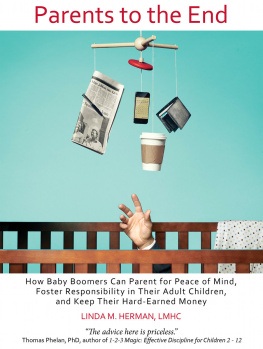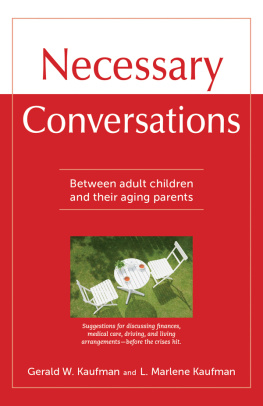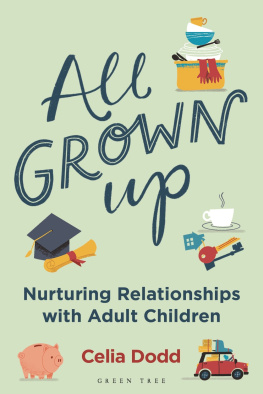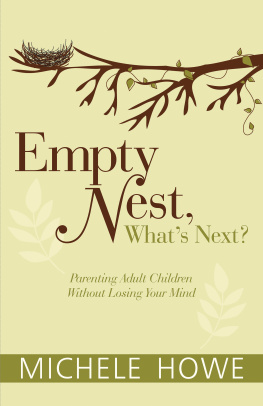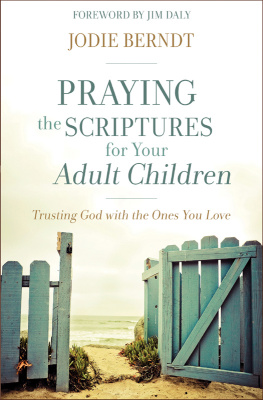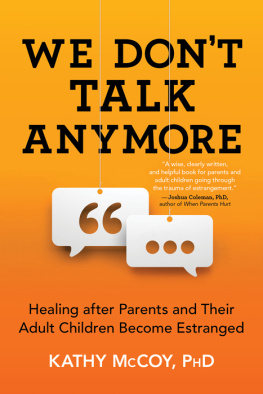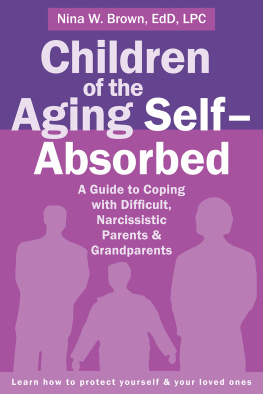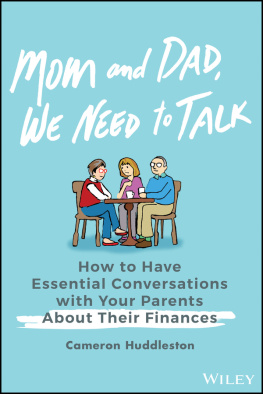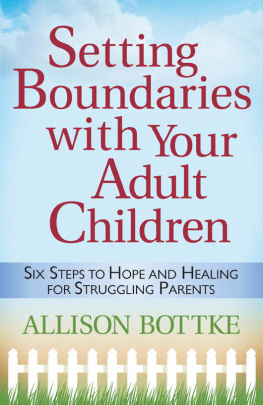
Parents to the End
------------
How Baby Boomers Can Parent for Peace of Mind, Foster Responsibility in Their Adult Children, and Keep Their Hard-Earned Money
---------
LINDA M. HERMAN, LMHC
---------
NTI UPSTREAM
CHICAGO
2013 BY NTI UPSTREAM
All rights reserved.
Except as permitted under the U.S. Copyright act of 1976, no part of this publication may be reproduced, distributed, or transmitted in any form or by any means, or stored in a database or retrieval system, without the prior written permission of the publisher.
NTI UPSTREAM
180 N. MICHIGAN AVE., STE. 700
CHICAGO, ILLINOIS 60601
NTI UPSTREAM books may be purchased for educational, business, or sales promotional use. For more information about special discounts for bulk purchases or to book a live event, please contact NTI UPSTREAM Special Sales at 312-423-5669.
Grateful acknowledgement to: JEANNE WEBSTER BLANK, author of The Death of an Adult Child: A Book for and about Bereaved Parents (copyright 1998, Baywood Publishing Co., Inc.) for the Four Phases of Grief, Chapter 2, page 23; and to MALCOM S. KNOWLES, ELWOOD F. HOLTON III and RICHARD A. SWANSON, authors of The Adult Learner (copyright 2011, Taylor and Francis) for the six assumptions about an adult learner, pages 64-68.
LEGAL DISCLAIMERS
This book is for informational and educational purposes only; it should not be intended as a substitute for professional psychological, psychiatric, or psychotherapeutic treatment. This book should not be used to prevent, diagnose or treat any mental health conditions or disorders.
The names of children and families, as well as some of the identifying details of events in the case studies, have been changed.
LIBRARY OF CONGRESS CONTROL NUMBER: 2012938933
ISBN: 978-0-9836396-7-1 (Print)
ISBN: 978-0-9836396-8-8 (ePub)
ISBN: 978-0-9840531-8-6 (Mobi)
COVER PHOTO BY GLEN GYSSLER PHOTOGRAPHY
AUTHOR PHOTO BY JAIME HERRERA, JRB MULTIMEDIA
EDITED BY JEFF LINK
Printed in the United States of America
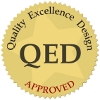
QED stands for Quality, Excellence and Design. The QED seal of approval shown here verifies that this eBook has passed a rigorous quality assurance process and will render well in most eBook reading platforms.
For more information please click here.
To Robert, Marcus, and Jim
Dont handicap your children by making their lives easy.
ROBERT A. HEINLEIN
PART ONE
Baby Boomers as Parents of Adult Children
CHAPTER ONE
---------
Post-Adolescent Parenting
They want the moon, Anna said to her friend as they boarded a plane bound for Kansas City. Her daughter and son-in-law, a struggling couple in their thirties, had just gone to Macys and charged a new set of living room furnitureexpensive living room furniturewhich, by any standard, was no small investment. Having just paid for the couples medical expenses (four thousand dollars when all was said and done), Anna and her husband Larry were not pleased. What was intended as a gift to help the young couple escape credit card debt had only sunk them deeper into trouble. How could their beloved child, a diligent student whom they had raised in a budget-conscious household, forget the valuable lesson of living within ones means?
If this story sounds familiar, thats because, for many of us, footing the bill for our post-adolescent children is indeed the reality of parenting. If you thought your job was done when your child finished high school or college, landed that first job, or finally signed the lease on his first apartment, it may be time to reevaluate your expectations. Most parents look forward to the day when they no longer feel financially or emotionally responsible for their children. But, for many, that day seems hopelessly far off. There is the fearnot unjustifiablethat theyll be the provider and caretaker for their children forever.
Of course in a way thats true. You will always be your childs parent, and youll always have a role in his life. Determining that role, however, can be difficult, especially with young adults who are not ready or not choosing to assume responsibility for their lives. If youve been to the parenting section of a bookstore recently or browsed your e-reader for relevant titles, you know there is plenty written about parenting children and adolescents. Yet there is surprisingly little guidance for those whose sons and daughters are twenty-three or twenty-six years old and camped out in their childhood basement. Healthy, respectful parents know that it is not their job to control the lives of their children. What they may not know, however, is how to encourage their adult childrens growth during the oft-ignored period of post-adolescence. Rather than focusing on what children need to do in order to change, this book focuses on what you can do, active steps you can take, to avoid becoming your childs permanent hotel and bank account.
Anna and Larry are not at all unique. Their story is like that of many baby boomers, who, for a variety of reasons, are still actively parenting (or worrying about how to parent) their adult children. Questions like theirs come up repeatedly in my suburban Seattle office, where I work as a psychotherapist. Parents consistently report that their young adults are making financial choices that make no sense, splurging on expensive dinners or transcontinental vacations, yet comfortably ask for and accept money when their bank accounts run dry. It wasnt that way when Anna and Larry started out, not in their minds anyway. Self-made, they neither expected nor received material help from their parents. They built their lives through hard work, wise choices, and determination.
The view that adult children of this generation are less self-sufficient than their parents that they are less ambitious, less driven to successmay have some basis in reality, but it ignores an important point. If our adult children are looking to us increasingly for support, if they are relying on us to pay for their new living room furniture and pick up their cell phone bills, that dependency may have as much to do with the signals we are sending as parents as with a lack of work ethic.
Expectations in Boomer and Depression-Era Parents
It is true that many adult children have unrealistically high expectations of their parents. They expect Mom and Dad to foot the bill each time they get an unexpected traffic ticket or have to visit the dentist. This is indeed a problem but so is the fact that many baby boomer parents, though they might not care to admit it, place these same high expectations on themselves.
While there is nothing wrong with expecting achievement, we cannot assume that our values and aspirations will automatically be reflected in our children. Unlike our Depression-era parentswho communicated high expectations even though they lacked opportunities to achievewe baby boomers tend to strive for our own success, without necessarily demanding its prerequisites in our children. Did Anna follow her parents example, insisting on her daughters independence? Or did she do just the opposite: setting lower expectations for her children because her parents had set the bar so high? The answer probably lies somewhere in the middle, and Annas financial position complicates the calculus. Like Anna, many of us have undeservedly modest expectations of independent behavior for our children, complicated by the fact that we have the financial means to rescue them when lifes unexpected bumpslike a $4,000 medical billget in the way.
Next page
